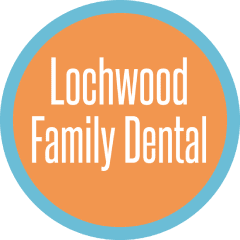Implants are biocompatible structures that our dentists surgically place into the bone of an area with a missing tooth. Dental implants act as a foundation for an artificial crown, permanent bridge, or supporting structure for a denture. We provide dental implants for patients to restore one or more missing teeth at Lochwood Family Dental in Dallas, TX. Our dental implants offer long-lasting support and act like natural tooth roots. We also provide additional restorative dentistry treatments in Dallas, Texas.
Tooth implants are a lasting and comfortable treatment for missing teeth. No matter how many teeth you are missing, dental implants can restore the beauty and function of your smile. Modern dental technology, materials, and techniques make implants more natural-looking and durable than ever.

Why Should You Replace Missing Teeth?
Our dental care team recommends seeking help for missing teeth as soon as possible for optimal results. Without treatment, missing teeth can lead to advanced dental health concerns.
Untreated, missing teeth can lead to:
- Recession of jawline
- Bone deterioration
- Infection
- Decrease in ability to chew
- Gum disease
- Further tooth loss
- Damage to remaining teeth
Dental implants provide patients with many benefits that will improve the quality and confidence of their smiles. Implants are the preferred method of tooth replacement for their high success rate. 99% of dental implant procedures are successful and provide lasting results. Dental implants act as prosthetic teeth, filling the root canal and helping support the structure of your jaw bone.
Dental Implants in Dallas, TX
Not everyone is a candidate for a dental implant. A candidate must have good oral health and proper bone density and width for a successful procedure. Following the surgery, you will require a healing period for your mouth to heal over the implant post. The healing period also allows the bone tissue to build up and permanently anchor the device.
If you have jaw bone loss, we will recommend grafting before implant treatment. Bone grafting adds healthy bone tissue where it’s needed.
Our office will also recommend gum therapy or cavity treatments for gum disease or tooth decay. We must ensure you are healthy enough for implant treatment. Then, once you are healthy, we will build a comprehensive treatment plan to address all your missing teeth issues.
Our dental care team will tend to every step of your treatment for consistent, thorough, and high-quality results. We will take the time to understand your dental health concerns and your cosmetic goals.
First, we will take digital X-rays to view your teeth, gums, and jaw. These X-rays help us determine where you have missing teeth and if you need grafting. Depending on the number of missing teeth, we will recommend a single crown, bridge, or denture.
To begin treatment, an oral surgeon will place the implant posts in the jaw. The surgeon will also place a temporary restoration. It takes three to six weeks for your jaw bone to grow around the implant post. This process is called osseointegration.
Once healed, we will place the abutment or connector piece between the post and the restoration and take another impression.
You will require several more weeks for your gums to heal. Finally, we will place your final crown, bridge, or denture once you are fully healed.
How to Care for Dental Implants
We recommend that you avoid smoking or using tobacco products throughout the implant process. Nicotine can restrict the blood vessels, which slows healing. Your implants may fail if you smoke, vape, or use other products during implant treatment.
Fortunately, dental implants require no more care or maintenance than natural teeth. However, the implant depends on healthy surrounding gum tissue to remain intact. Brushing, flossing, and biannual dental checkups will keep your dental implants healthy.
Dental Implants FAQs
Do you want to know more about implant treatment? Here are answers to some of the most commonly asked questions about dental implants:
Are dental implants permanent?
If you properly care for your smile, your implant posts will permanently stay in the jawbone. While you may need to receive a new restoration over time, the implant anchor should remain in place.
What do teeth implants feel like?
Once your implants fuse with the jaw bone, the posts will feel like natural teeth. The anchor is a replacement tooth root to secure porcelain restorations that feel like natural teeth.
Can dental implants cause sinus problems?
Most dental implants will not cause any sinus problems. Patients will only encounter sinus issues if the oral surgeon places the implant post incorrectly. The oral surgeon can add more bone to the sinus cavity with a sinus augmentation or bone graft treatment.
Although implants may sit in that area, you should not experience problems. We will ensure the implant does not move up the sinus to create issues.
Can dental implants fail?
Dental implants can fail if patients develop infections, consume tobacco during the implant process, or do not have sufficient jaw bone. We always ensure patients are good candidates before treatment. Our dentists will recommend services like bone grafting to provide adequate support.
Will dental implants improve gum disease?
Implants cannot cure gum disease. We recommend gum disease treatment before you receive your dental implants. Gum disease will impact the stability and health of the implant. After we treat your gum disease, we can begin implant treatment.
How much do dental implants cost?
Dental implants can vary in cost depending on how many you receive and the type of restoration that your implants will secure. We will provide you with an estimate of your implant cost after we examine your mouth. Our team will also consider factors like bone grafting and possible preparatory treatments.
Restore Missing Teeth
Replace one or more lost teeth and restore your oral health today. Schedule a dental consultation online or call our office at 214-544-9633.
Please let us know if you have more questions about dental implants in our Dallas, TX, office. We will be glad to answer them for you at your next visit. Our office serves patients in Highland Meadows, Lochwood, and Towngate.
